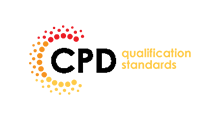Brainstorming and Marketing Research

The second secret to writing e-books that sell – even if you are not the most skilled writer in the world – is to take advantage of knowledge and resources that already exist and other people have researched about. Research does not have to be a time-consuming process. You just have to be practical and resourceful about it. Scour the Internet for data that other people had already researched and double-checked for accuracy and reliability.
Top Websites that Tell You Which E-books Sell
These resources are the best that the Internet has to offer because virtually everything is automated. You only have to know the magic keywords – a.k.a. keywords for your chosen niche – to find out which e-books are selling like hotcakes.
Jungle-Search.com
You can get a lot of in-depth information from this site. What’s more, it offers listings for other languages as well, which would be a good thing if you are targeting a bilingual market or you plan on producing your e-book in multiple language formats. You can also search by category or subject (sub-niche), price range, reader age and many other factors.
Clickbank.com
Many e-book writers prefer to sell their books via Clickbank if they one of their products for affiliate marketing. If you are thinking of using the same approach for your future e-books as well, then you should definitely check out which books made it to Clickbank’s bestseller lists.
EReaderIQ.com
It has many similar features to Jungle Search and also allows you to search according to review ratings. In any case, if there is something you cannot find at Jungle-Search, this website is a good alternative to check out.
NovelRank.com
This is a very simple website compared to the above sites, but sometimes simple really works best. In this case, Novel Rank will help you track the sales of any book or e-book sold in Amazon – including yours. What’s more, it can also track your sales in Amazon sites for other countries like France and Germany.
Amazon.com
Last but not the least, do not forget to check out Amazon’s own ranking for e-books in your niche. They also offer the best reviews since most Kindle readers are less inclined to visit other websites to post a review when they can do so right away at Amazon. Keep in mind that each website has its own pros and cons, and they vary depending on what type of information you are looking for. It is best overall then to make use of all of these websites when searching for your e-book’s topic. They are all free, anyway!
How to Make Your Ebook Stand Out
You now know what forces you are going up against with your future ebook and how tough the competition is. At this point, you have either become more confident or worried about your prospective sales. If you are already confident about your e-book’s chances of becoming a bestseller, then great because what you are about to learn will make your confidence level shoot to the top. If you are worried, don’t be – there is any way your e-book will end up a flop once you finish with this guide.
To make your e-book stand out, you need to do something that all the other e-books was not able to accomplish. That may sound impossible when you are writing about, say, something as broad as Internet marketing. Based on the number of e-books out there in the market that covers this topic, it almost seems like that even a guy who just became a virtual assistant (VA) for a day already thinks he has mind-blowing advice to offer to readers.
They do not, but YOU do! You just have to ask yourself the following questions then choose which ones you believe you can more than satisfactorily answer with your e-book.
Unique Content
What topics did the other e-books did not cover but you can? If everyone is talking about blog marketing, then how about choosing something slightly different? How about covering the Internet marketing aspect of photo-blogging or vlogging instead? If you want to cover the same topic, what can you do to prove that your e-book can do a better job of tackling the subject matter?
So you really want to write about blog marketing, and you want to explain why blogs are more interesting to read than, say, feature articles online. Other e-books have covered the exact same topic, but you can prove to them yours is the better – or even the best – version. Start with a killer title (more about this later) then do not forget to give them an excerpt through your marketing efforts as well as a short list of what they can expect to learn for the blurb of your e-book. Blurbs are typically like the back cover teaser or summary of a paperback.
What kind of perspective or POV can you use that the other e-books have not yet attempted to cover? You can also present your content as unique by choosing a different perspective. Some call this POV or angles. The name does not matter. The point is to show the content with a fresh pair of eyes. There are two ways of doing this, and you have to determine for yourself which one would work better for your needs and your target market.
Method #1: You can use a different POV simply by making generalised content more specific or oriented towards your sub-niche. Instead of writing about just blog marketing, you can write about blog marketing for those with online crafts businesses instead. The only downside to this, however, is those with non-crafts businesses are unlikely to read your material.
Method #2: Make generalised content more specific for a broader group of people. Target traits instead. Target other factors that do not have to do with any sub-niches. Consider writing about blog marketing for people who are using the Internet for the first time or writing about blog marketing for those using WordPress.
Unique Titles
If you have tried researching about writing titles before, then you may have noticed that advice from different Internet marketing experts can be quite contradictory. I personally use one basic formula for creating e-book titles, which can be divided into two steps.
Step 1: Follow the KISS rule (keep it short and simple) and include your primary keyword.
Step 2: Elaborate by using secondary keywords, numbers, and trigger words in your tagline or secondary title. You will notice that all non-fiction books and even movies have them. Titles function like headlines and attention-grabbers, but they cannot paint the whole picture without a sub-headline or secondary title.
You will notice both these rules have been adhered to even with this very guide you are reading.
Primary Title: Amazon Kindle MANIA
Secondary Title: Learn The Amazing Profit Making Kindle Strategies
That only goes to show that I do practice what I preach, and I do so because it really does work. As for other guidelines for writing unique and, more importantly, sales-worthy titles, a list of tips has been provided below. It is possible that all or just some of them may apply to the e-book you want to write.
- Make a list of keywords that you can use for your title.
- Find inspiration from titles of bestselling e-books in your chosen niche.
- Speak or use the language of your target market when composing your title.
- NEVER TAKE THE GENERIC ROUTE! Make your e-book stand out right away with a title that people will never forget.
Unique Book Cover

Some authors hate the fact that there are people who still judge a book by its cover. But you know what? Hating will get you nowhere. Why not take advantage of that quirk instead by making sure that your book stands out for all the best reasons – content, title, and cover? With book covers, you want to make sure that your e-book will look even completely professional. MEDIOCRE COVERS hurt more than BAD COVERS. At least with bad covers, you may still have tried your best. Readers know, however, if you did not try at all and they are less likely to purchase your book because of it.
For a unique and sales-worthy book cover, here are some tips to keep in mind.
- Less is more – especially if you are not yet good at creating or editing images in your computer
- Remember those free and available resources we were talking about? Check websites like GettyImages.com and see if you can buy or make use of a royalty-free photo for your book cover.
- If you are going to use symbolic images for your covers, make sure that your readers either get it at first glance or you have a witty explanation for it. Needless to say, the symbol must be relevant to your content.







-
Add a note